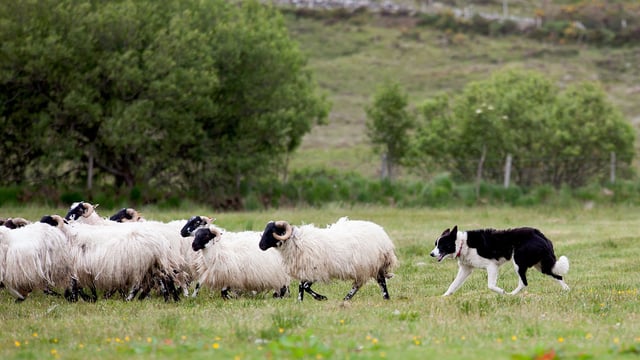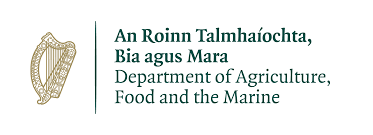Familiar migratory bird returns to Co. Kilkenny college
Kildalton Agricultural College in south Co. Kilkenny has seen the return of house martin birds, who make the 7,000km journey from the warmer temperatures of the Sahara each year.
According to college lecturer at Kildalton, Brian Clancy, these birds - which weigh no more than 20 grams (size of an AA battery) - "faithfully come all the way from Sub-Saharan Africa and the Iberian Peninsula to nest below the fascia boards on the college farm buildings".
Over the summer months, Ireland welcomes many migratory birds that visit and breed on our shores.
This includes the house martin (Irish name: Gabhlán Binne), which returns to Ireland from mid-March to late September.
Their nests, built from mud, can take up to three weeks to construct and are located in the eaves of houses or buildings.
Clancy explained: "The house martin's long migration means they don't have the energy to build a new nest, so regularly return to the same one each year."
An Irish Birds of Conservation Concern (IBoCC) List was published for 2020-2026, in which the house martin was Amber-listed, meaning they are of medium conservation concern.
Aerial feeders over farmland, like the house martin, indicate a good supply of flying insects are available.
Clancy outlined how house martins were first ringed in Kildalton College in 2016 by a local ecologist/ornithologist to allow for tracking of their movements.
He said: "The birds are aged and sexed and have other biometric data taken such as wing length, weight, stage of moult, fat score and muscle score. The bird is then promptly released."
Separately, researchers at Reading University have found that climate change and habitat loss could cause more than 500 bird species to become extinct in the next 100 years.
The study, published on Tuesday (June 24) in Nature Ecology & Evolution, revealed this number is three times higher than all bird extinctions recorded since 1500 CE.
The scientists found that even with complete protection from human-caused threats like habitat loss, hunting, and climate change, about 250 bird species could still die out.
Kerry Stewart, lead author of the research from the University of Reading, said: “Many birds are already so threatened that reducing human impacts alone won't save them.
"These species need special recovery programmes, like breeding projects and habitat restoration, to survive."
According to Stewart, the planet is facing a "bird extinction crisis unprecedented in modern times.
"We need immediate action to reduce human threats across habitats and targeted rescue programmes for the most unique and endangered species", she added.





